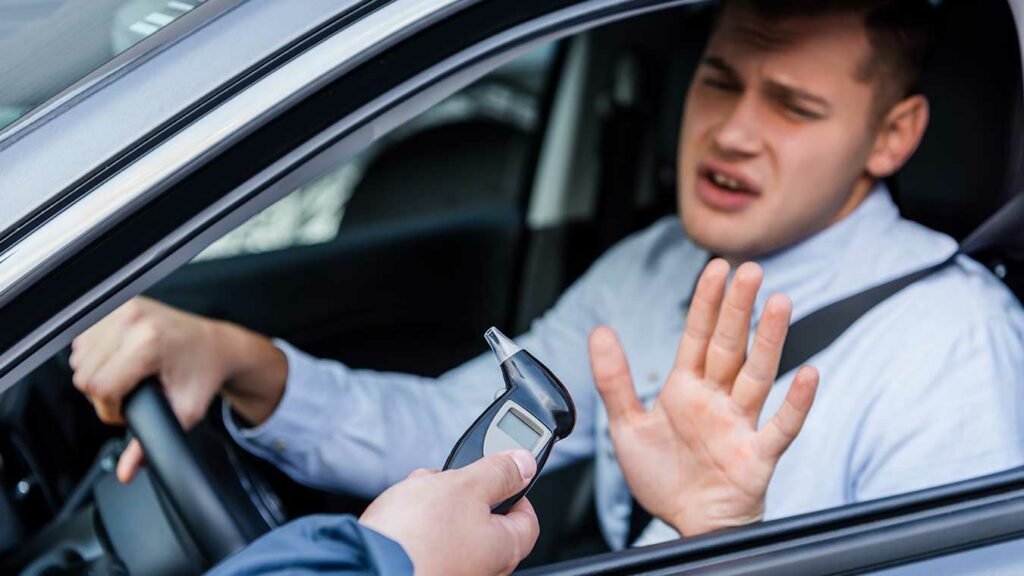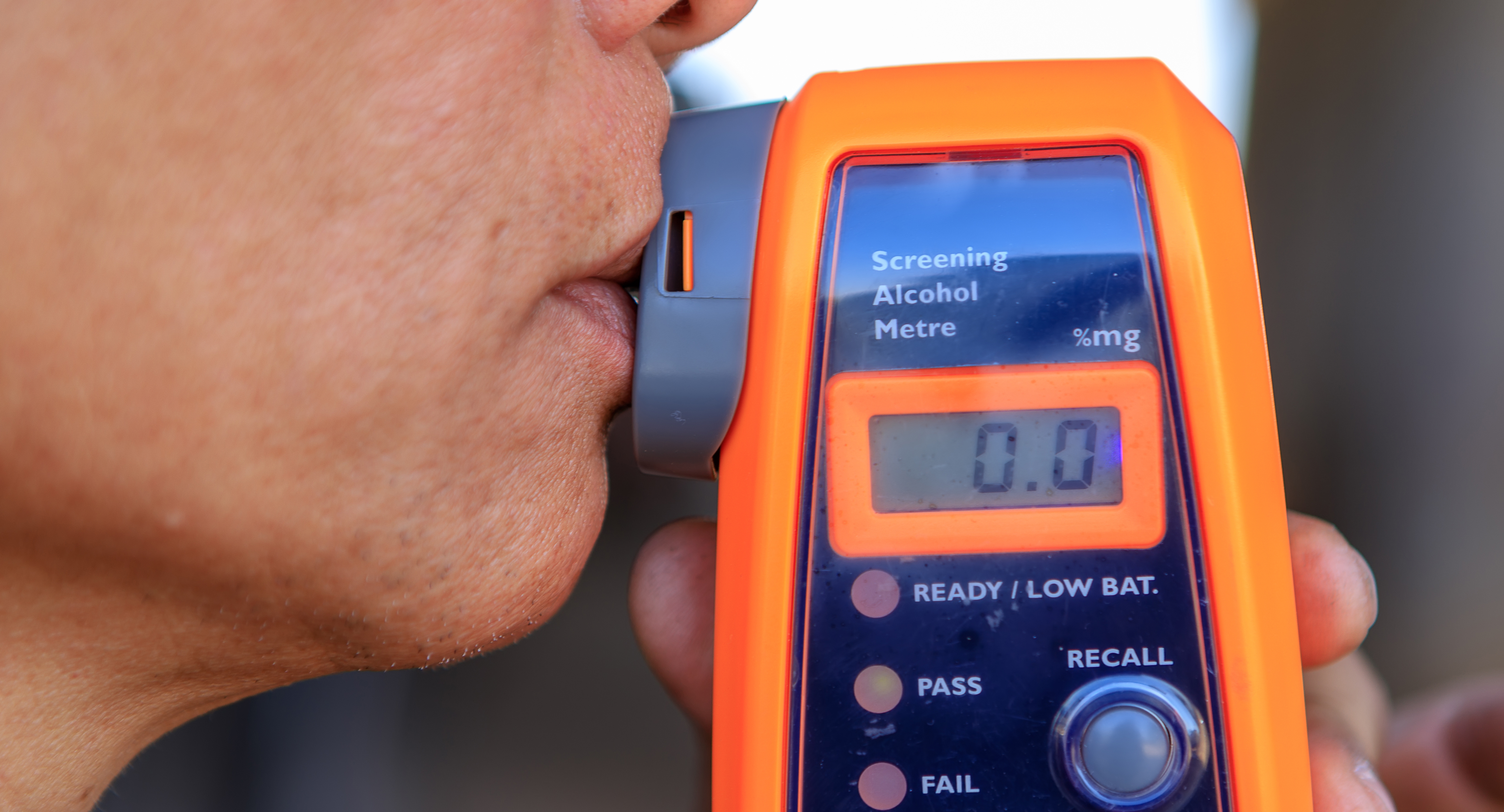- Field sobriety tests are never mandatory – even on “no-refusal” weekends
- You are also not required to take a Breathalyzer test at the scene of the traffic stop
- Refusing to take these tests is unlikely to affect whether or not you’re arrested
If you’re pulled over and a police officer suspects you’re under the influence, they will likely ask you to exit your vehicle and take a field sobriety test. They may make it sound like this test is not optional.
But are field sobriety tests mandatory in Texas? The answer is no, and knowing this can be crucial for protecting your rights.
What are Field Sobriety Tests?
Field sobriety tests are physical or cognitive assessments administered by police officers to evaluate a driver’s coordination, balance, and ability to follow instructions.
These tests are typically conducted during traffic stops when an officer suspects a driver is intoxicated. These tests are also sometimes referred to as Standardized Field Sobriety Testing (SFST).
There are three common field sobriety tests, along with a few less common alternatives that are still admissible in court in Texas:
Common Types of Field Sobriety Tests
Horizontal Gaze Nystagmus (HGN): An officer moves a pen or flashlight from side to side about 12 to 15 inches away from your face. You are asked to follow the object with your eyes while the officer observes for involuntary jerking (nystagmus).
Walk-and-Turn: You are asked to take nine heel-to-toe steps along a straight line, turn on one foot, and return in the opposite direction. Signs of impairment include losing balance, starting too soon, stopping while walking, failing to touch heel-to-toe, stepping off the line, using arms for balance, turning incorrectly, and taking an incorrect number of steps.
One-Leg Stand: You are instructed to stand on one foot with the other about six inches off the ground and count aloud for 30 seconds. Indicators of impairment include swaying, using arms to balance, hopping, and putting the foot down.
Other Non-Standardized Tests
- Romberg Test: Stand with feet together, head back, eyes closed for thirty seconds to measure swaying
- Finger-to-Nose Test: With head tilted back and eyes closed, touch the tip of your nose with the index finger
- Alphabet Test: Recite all or part of the alphabet, forwards or backwards
- Finger Count Test: Touch each finger to the thumb while counting (1, 2, 3, 4, 4, 3, 2, 1)
- Counting Test: Count backwards from a number ending in a digit other than 5 or 0 and stop at another number ending other than 5 or 0
Are Field Sobriety Tests Mandatory?
No matter what a police officer might imply, field sobriety tests are never mandatory in Texas, even if your traffic stop falls on a designated “no-refusal” weekend. It is your constitutional right to refuse to comply.
We always recommend that our clients refuse any and all field sobriety tests.
Think about it: When you’re pulled over by police, you’re already nervous. The squad car’s lights may be flashing, traffic may be zooming by, and you may have been blinded by a bright flashlight. Even your choice of footwear can be a factor.
We also recommend refusing to take a portable Breathalyzer test. These are notoriously inaccurate. Two consecutive tests can vary by as much as 25%, and various medical conditions, mouthwash use, or even a poorly timed burp can affect the results.
DWI/DUI Testing Laws
Field sobriety tests are optional in all U.S. jurisdictions, including Texas. You cannot be penalized for refusing to comply with these tests during a traffic stop.
However, Texas’s “implied consent law” requires you to submit to a breath or blood test if you are arrested on suspicion of DUI or DWI. In essence, when you obtain your Texas driver’s license, you agree to consent to blood testing – as long as the arresting officer has reasonable suspicion that you were driving while intoxicated.
At this point, refusing these tests can result in a suspension of your driving privileges, and police will simply obtain a search warrant to force you to comply.
However, there are a few exceptions in which a Texas driver must comply with testing, even without a warrant:
- If an accident has caused a serious injury or fatality
- If you have a previous conviction for DWI with a child endangerment, DWI manslaughter, or intoxication assault
- If you have at least two prior DWI convictions
READ MORE: DUI vs. DWI
Refusing a Field Sobriety Test
If a police officer asks you to exit your vehicle during a traffic stop, you must comply.
However, your obligation ends there. Refuse any and all testing. Your refusal will not result in a penalty, although there may be other consequences, such as having your license confiscated and potentially being arrested.
However, by this point in your traffic stop, it’s almost certain that the officer has already decided whether or not to arrest you. A test isn’t going to make much of a difference, and will likely hurt your case.
Field Sobriety Tests Won’t Help Your Case
Field sobriety tests are notoriously difficult to pass, even for sober individuals. Environmental factors, medical conditions, and the stress of the situation can negatively impact performance.
In one study published in the Journal of Toxicology and Pharmacology, 26% of participants got a false positive result.
Even if you pass the tests, the results are unlikely to help your case.
It’s important to remember that during a traffic stop, you’re always being recorded. That video is often the main piece of evidence against you. And in our experience, having no recorded evidence of a test at all is far better than a video in which you may appear to be even slightly intoxicated.
If you’ve already taken a test and failed, we can help. We have several defense strategies we can use to dispute the results, including:
- The officer lacked reasonable suspicion or probable cause for the traffic stop
- The test was not adequately explained
- The arresting officer misinterpreted your results
- There were medical or environmental reasons for your failure
- The tests themselves are unreliable

Are Blood or Breathalyzer Tests Mandatory?
It is not mandatory to consent to any testing at the scene of your traffic stop. However, as previously mentioned, the stakes change if you are arrested.
At that point, refusing to take a blood or Breathalyzer test can risk a driver’s license suspension, and the officer can obtain a warrant to force you to provide a sample.
Once a warrant is obtained, we advise you to comply with the testing. Otherwise, they will take a sample by force, and it could potentially be very unpleasant.
READ MORE: Everything you need to know about DWI in Texas
We Can Help
If you’ve been arrested, it’s important to start building your defense as soon as possible. Contact us at Michael & Associates. We’re available 24/7 to assist you. We have blood scientists on staff who can help you contest your test results, an ALR team to help you keep your driving privileges, and a group of experienced criminal defense attorneys who will fight to get any charges against you downgraded or even dropped.




